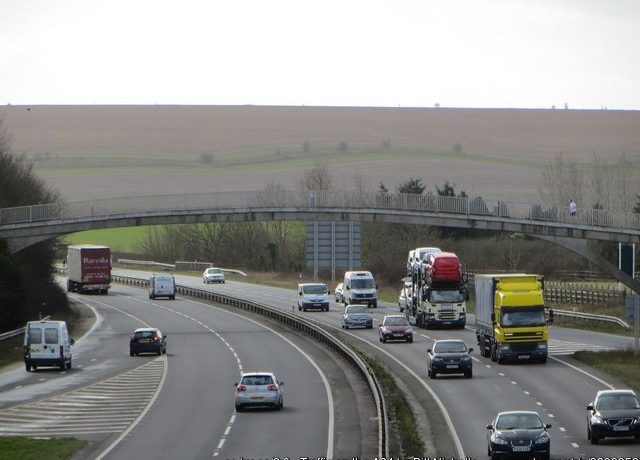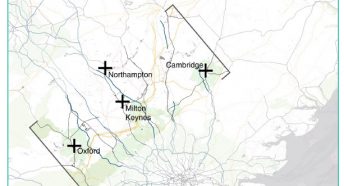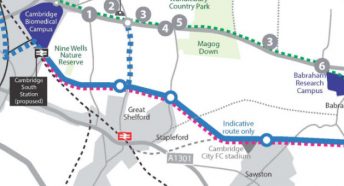New regional transport strategy: on the road to urban sprawl?
Countryside campaigners are calling for the environment to come first, as a regional infrastructure body announces its new transport strategy for the region.
The Campaign to Protect Rural England (CPRE) Regional Chairman Michael Monk says if the strategy goes ahead in its present form, it will lead to the sort of urban sprawl that CPRE was established to prevent.
England’s Economic Heartland (EEH) is launching the Outline Transport Strategy for the region on 16 July at a conference at the University of Hertfordshire. EEH is a strategic partnership looking at development from Swindon to Cambridgeshire and from Northamptonshire to Hertfordshire, including the Oxford to Cambridge (OxCam) Arc.
“This strategy is really a Trojan horse to promote huge levels of development right across the remaining countryside of the northern arc around London,” he said. “There needs to be an urgent national debate on the wisdom of this proposal and whether or not it is in the national interest when so many other regions of the country are crying out for regeneration and investment.”
CPRE welcomes the EEH acknowledgement that ‘economic growth should not be at the expense of the environment’. On that basis, CPRE calls for the strategy to:
- Promote the co-location of jobs and housing to minimise commuting
- Commit to public transport and integration between different modes of transport
- Offer genuine public engagement
- Provide solutions that address the Climate Emergency
- Reject the unnecessary and environmentally damaging OxCam ‘Expressway’
CPRE agrees an East-West rail link will close an important gap in the network. They say it would offer journey opportunities not currently available without travelling via London. However, CPRE remains concerned that connections with North-South rail links will encourage commuting and migration from London.
CPRE are also worried that an OxCam ‘Expressway’ is really designed to become an outer M25. They fear the ‘Expressway’ would facilitate large-scale development in the countryside and encourage long-distance commuting by road.
The Annual Progress Report to Government of the Committee on Climate Change, published last week, indicated that UK action to curb greenhouse gas emissions is lagging behind what is needed to meet legally-binding targets. The report said surface transport is now the largest single source of greenhouse gas emissions in the UK. Road transport is also a major source of small particulate emissions which are highly dangerous to health, especially to that of children.
Chair of CPRE Cambridgeshire and Peterborough, Alan James said “We must refocus investment on to a properly integrated public transport system with the East-West Rail at its core. This would negate any need for a motorway between Cambridge and Oxford. Enhanced local public transport could substantially reduce daily car use. The resulting reductions in carbon emissions, air and noise pollution and the disruption of the countryside will reduce risks from climate change and improve public health”.
You can view the Outline Transport Strategy and also have your say.






